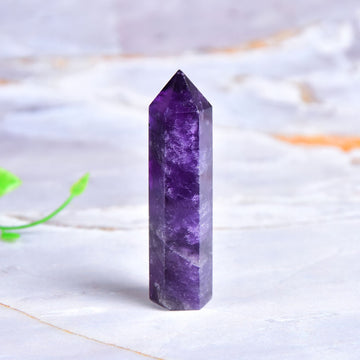 In Sanskrit, Ashwagandha means “the smell of a horse,” indicating that the herb holds the strength of a stallion, and has traditionally been prescribed in ancient Ayurveda to help people strengthen their immune system after an illness.
In Sanskrit, Ashwagandha means “the smell of a horse,” indicating that the herb holds the strength of a stallion, and has traditionally been prescribed in ancient Ayurveda to help people strengthen their immune system after an illness.
The herb, also known as Withania somnifera, is native to the dry regions of India and it actually belongs to the same family as the tomato. Ashwagandha is a plump shrub with oval leaves and yellow flowers. It bears red fruit about the size of…a raisin.
And don’t they say good things come in small packages?!
But actually, it is the root, not the fruit, of the plant that is the prize here.
Uses of the root can be traced back as far as 3,000 years. Ashwagandha is classified as a rasayan, in Ayurvedic science, a rejuvenating or life extending agent. The rasayan are the most esteemed of all of ayurveda’s herbs. The root of the plant appears in remedies for cough, rheumatism, gynecological disorders, fatigue, emaciation, inflammation, ulcers, sore eyes, diminished brain function, and (what you may have heard of it for), improves low libido and sexual organ function in men and women.
According to the American Herbal Pharmacopoeia, a whole acre of cultivated ashwagandha will yield about 500 pounds of the root, which when dried, reduces to around 150 pounds. It takes a full year to bring the plant to maturity. Harvest is usually between January and March, but the nice thing is that the plant is forgiving since it requires little attention and no irrigation, even in the parched climate of southern India. Ashwagandha is a strong and vigorous plant, thriving where other plants would wither and die.
Therefore it could be called a power plant…and many scientists would agree.
There are over 200 studies done that portray it’s reaping benefits.
Some of the most notable recent studies:
- Tokyo University of Technology researchers found that Ashwagandha slows the process of melanocyte stem cell phosphorylation, giving it the potential of blocking skin cancers. Plus Researchers from Louisiana State University found that Ashwagandha inhibited cancer tumor growth.
- Research from the Asha Hospital in Hyderbad found, in a study of 64 people with chronic stress, that Ashwagandha supplementation for two months decreased stress by 44% and decreased depression and/or anxiety by 72%.
- Research from Texas’ Baylor University found that Ashwagandha reduced inflammation related to type I diabetes. There have also been studies on it’s aid in type 2 diabetes.
- Colorado State University researchers found that Ashwagandha and other Ayurvedic herbs help protect the heart from oxidative damage.
- Researchers from the Defence Institute of Physiology and Allied Sciences found that Ashwagandha supported memory and helped prevent nerve cell degeneration among rats.
- Researchers from the ICMR Advanced Centre for Reverse Pharmacology in Traditional Medicine found in a 30-day clinical trial among 18 healthy volunteers that 750-1250 milligrams of Ashwagandha per day reduced cholesterol, improved sleep and increased muscle strength.
- Research from India’s National Research Institute of Ayurvedic Drug Development found that Ashwagandha combined with other Ayurvedic herbs reduced symptoms among tuberculosis patients.
- Jamia Hamdard University researchers found that Ashwagandha reduces oxidative damage related to brain cell damage – making it useful for reducing dementia and Alzheimer’s risk.
- Banasthali University researchers found that Ashwagandha may protect the liver against lead toxicity.
- Researchers from Brooklyn’s Woodhull Medical Center found that Ashwagandha increases circulating cortisol levels and improves insulin sensitivity. This effect was also found for those with adrenal insufficiency issues or even congenital adrenal hyperplasia – a birth defect of the adrenal glands.
And these are just a handful of the studies.
In Ayurveda, there are specific herbs with adaptogenic actions such as Ashwagandha. Adaptogens are substances (a combination of amino acids, vitamins, and herbs) that modulate your response to stress or a changing environment. Adaptogens help the body cope with external stresses such as toxins in the environment and internal stresses such as anxiety and insomnia. Ashwagandha contains many useful medicinal chemicals, including withanolides, (steroidal lactones), alkaloids, choline, fatty acids, amino acids, and a variety of sugars.
And so even with it’s 5,000 year old ancient science proof, it seems this stallion of a herb’s therapeutic potency to: inhibit cancer, decrease stress and depression,reduce the body’s inflammation, protect the heart, reduce cholesterol, improve sleep, help muscle strength, reduce oxidative damage to brain cells, aid in liver protection, help certain adrenal gland defects, and have overall improvement in immune function can finally be discerned by western medical practitioners as well.
References:
Chandrasekhar K, Kapoor J, Anishetty S. A prospective, randomized double-blind, placebo-controlled study of safety and efficacy of a high-concentration full-spectrum extract of Ashwagandha root in reducing stress and anxiety in adults. Ind Jnl Psych Med. 2012 34(3): 255-262.
Baitharu I, Jain V, Deep SN, Hota KB, Hota SK, Prasad D, Ilavazhagan G. Withania somnifera root extract ameliorates hypobaric hypoxia induced memory impairment in rats. J Ethnopharmacol. 2013 Jan 30;145(2):431-41.
Debnath PK, Chattopadhyay J, Mitra A, Adhikari A, Alam MS, Bandopadhyay SK, Hazra J. Adjunct therapy of Ayurvedic medicine with anti tubercular drugs on the therapeutic management of pulmonary tuberculosis. J Ayurveda Integr Med. 2012 Jul;3(3):141-9.
Li W, Zhao Y. Withaferin A suppresses tumor promoter 12-O-tetradecanoylphorbol 13-acetate-induced decreases in isocitrate dehydrogenase 1 activity and mitochondrial function in skin epidermal JB6 cells. Cancer Sci. 2012 Oct 27.
Singh AB, Singh N, Akanksha, Jayendra, Maurya R, Srivastava AK. Coagulanolide modulates hepatic glucose metabolism in C57BL/KsJ-db/db mice. Hum Exp Toxicol. 2012 Oct;31(10):1056-65. : 10.1177/0960327112438289. PubMed PMID: 23060434.
http://www.herbwisdom.com/herb-ashwagandha.html



































